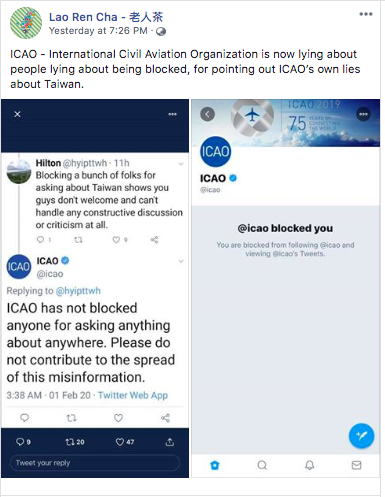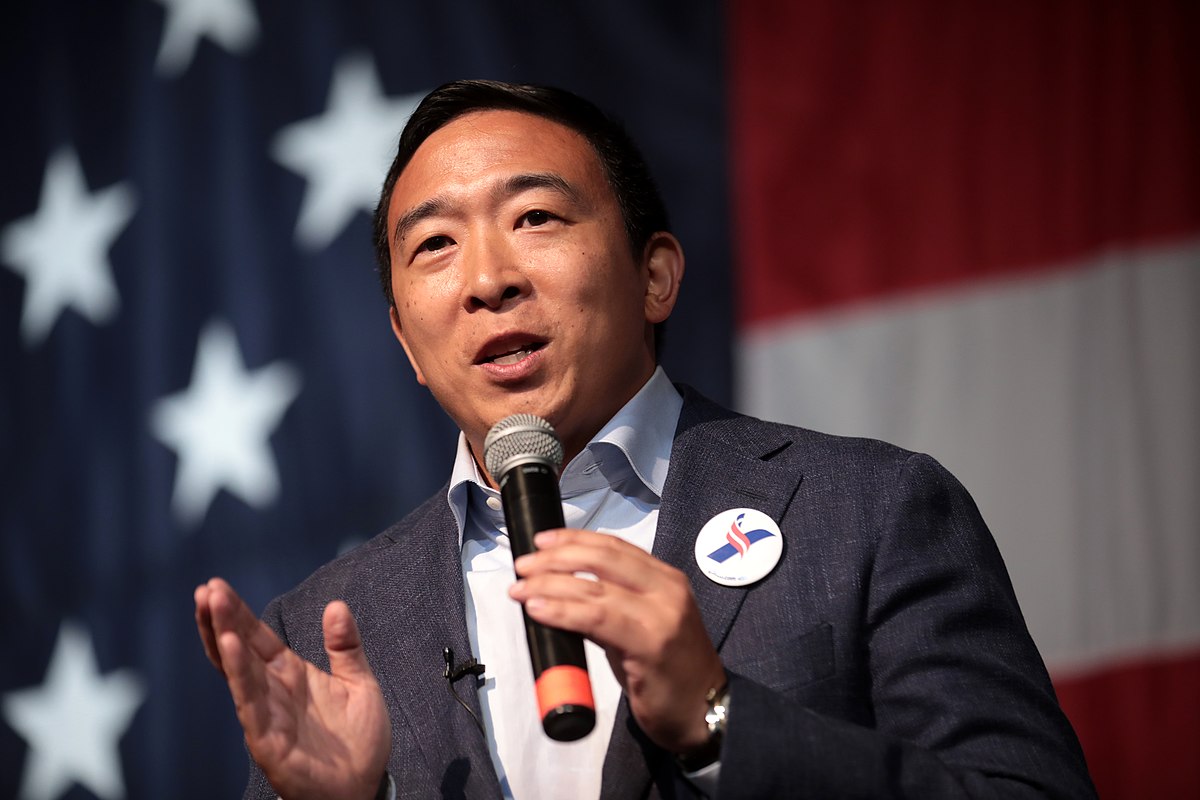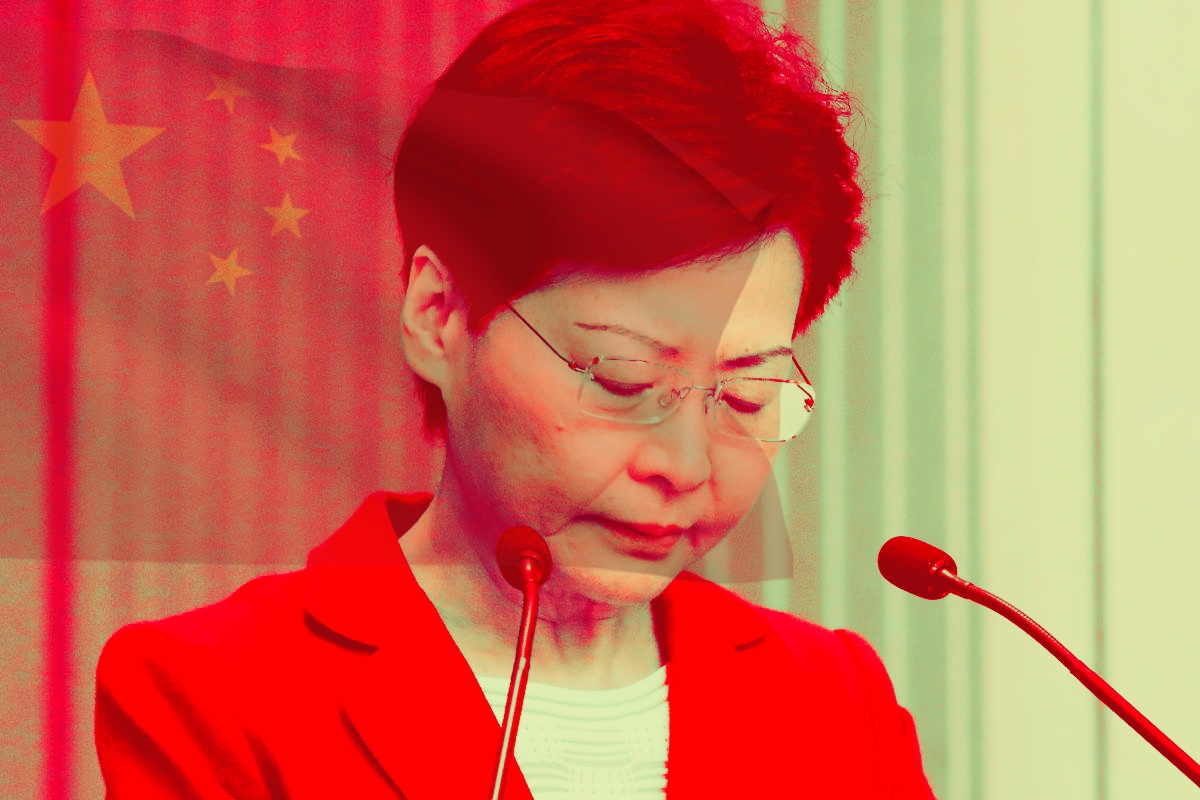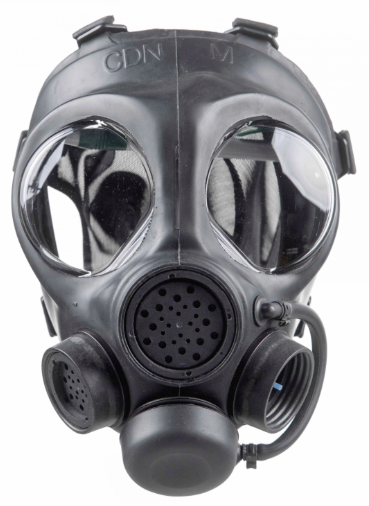 |
| Armenian genocide refugees in what I believe is Athens, Greece (probably, though not certainly, Kokkinia) before WWII |
You probably don't think Rep. Ilhan Omar's decision not to vote for the official recognition of the Armenian Genocide, which has drawn a media firestorm, could have any relationship to the Taiwan and China issues...and yeah, you'd probably be right. But I'm like that crazy dude with a shed where the inside is covered in newspaper clippings and photos with thumbtacks and red string connecting them in seemingly random ways, so hop aboard, this crazy-string train's about to sail.
But two things before we kick off: first, I'm not writing this to attack Omar as a person or public figure. I'm not even specifically concerned about a donation she received from an Erdogan ally, though obviously I'm not a fan. She as a congressional representative is actually somewhat irrelevant to the point I want to make - it's the flawed logic behind her choice that I want to address. And secondly, I actually do think that a vote on an unrelated issue by a young super-progressive Democrat has a lot to tell us about why the fight for Taiwan is so hard.
My first reaction to Omar's vote was inherently tribalist: Armenians are my people (on one side, anyway) and they've been fighting for international recognition of the genocide perpetrated against them in Turkey for over 100 years now against a Turkish propaganda machine hell-bent on silencing them to save Turkish face. I exist because the genocide happened, so hear that someone I have otherwise supported voted against its recognition for purely political reasons felt like a hard slap. You know, like the way I feel when progressives I would otherwise support make vaguely pro-China sounds.
I had felt - and still feel - that previous attacks on Omar have been disingenuous. "She disrespected 9/11 victims" was fabricated and I see criticism of the Israeli government and lobbyists - including AIPAC - and the massive sums they spend to further their agenda, not anti-Semitism. Media reporting of her comments makes it difficult to separate what she actually said and how it might be interpreted from the truthiness machine that certainly has aimed in the past to smear her, and for this reason I'm generally more likely than not to lean sympathetic to her.
This time, however, her own office's press release disappointed me. Although I believe she attempted to take an ethical stance (and failed), I wonder what the logic of such so-called 'ethical' stands would result in, if used to justify certain positions or votes on issues related to Taiwan and the region where I live. In fact, a lot of them are already being employed this way.
How so? Well...
"This is just a political move designed to embarrass Turkey at the worst possible time"
"Erdogan's not great, but if we anger him and embarrass Turkey with this political move, he might not hold back on the Syrian border" types were the first I encountered after the news broke. I want to be very clear: it's the sort of thing I heard online. Omar's press release indicates that she doesn't believe this, though none of her actual votes seem to back that up.
In any case, Turkey deserves to be embarrassed over its blatant historical revisionism. More importantly, it's just not a great idea to avoid acknowledging certain facts because it could hurt a dictator's feelings, or to play the game beloved by authoritarians of "you back down on this and maybe I won't commit genocide (again)". That's a game we just can't win. The game was designed to be lost and the only way to end it once and for all is to refuse to play.
You don't have to imagine the same logic being applied against Taiwan now, because it's already happening. I feel like "if we recognize the obvious truth that Taiwan isn't and doesn't want to be a part of China, that could anger China, so we'd better not" has been a decades-long game of political make-believe.
In any case, just as Turkey deserves to lose face re: their ret-con of history, China deserves to lose face over its treatment of its neighbor, Taiwan.
"She agrees with the content of the bill, but not how it's being used as 'a political cudgel'"
A lot of defenders of Omar's choice made this case, I suppose choosing to interpret her statement that "I also believe accountability for human rights violations—especially ethnic cleansing and genocide—is paramount" meant that she did personally recognize the fact of the Armenian genocide, but did not like it being used as "a cudgel in a political fight".
This is a generous interpretation and plausible, but that's not what I see. Nowhere in her statement does Omar actively recognize that the Armenian genocide happened - no words of sympathy for the descendants of refugees, despite being a refugee herself. Her statement goes no further than to say "genocides everywhere are bad". It does not say "I understand that this genocide happened".
Later she clarified that she does understand that the Armenian Genocide happened and it should be recognized:
"My issue was not with the substance of this resolution. Of course we should acknowledge the Genocide,” she tweeted in response to MSNBC host Chris Hayes. “My issue was with the timing and context."
This is super personal for me, and it does matter that she avoided doing so in her press release. And, as a descendant of the diaspora, "gee golly I'd like to recognize your history but it's just not the right timing and context" is just not good enough. Sorry - it's not.
"I'm concerned about the timing and context" is also political, especially when you're using those as reasons not to do the right thing, which you say you actually believe in.
How about this - this is my history regardless of whether it's convenient for you, so screw your "timing" and "context". Okay?
The same thing is done to Taiwan, by the way. It exists whether people like it or not. Yet how often is Taiwan told "we know you're doing great, it's just bad timing. We can't help you right now, because Big Scary China is there"?
Since I joined this fight (by "joined" I mean "started a blog and helped a few people out behind the scenes", but hey), it sure feels as though Taiwanese and Taiwan allies are asked, over and over again, to sympathetically interpret the words and actions of politicians abroad as wanting to support Taiwan or understanding Taiwan is a sovereign state, when their actual words/actions perhaps don't merit such generosity - and to accept and satisfied that they "believe" in our cause without expecting any real action. Why should we, though? It's been decades. Come on.
I remember when Obama was known to personally understand the truth of the Armenian genocide, but what exactly did he do to concretely further the cause of its recognition? Nothing. Personal belief doesn't mean much in the political sphere, as I see it. Stand up to dictators, damn it - don't just talk about how you'd like to.
This "political cudgel" line of thinking is also applied to Taiwan in other ways: have you heard sentiments along the lines of "we shouldn't support this pro-Taiwan initiative because Taiwan is just a political tool to the people sponsoring it"? I have - often. "I care about Taiwan but not in this call to normalize relations because it's just being proposed to anger China, so I won't actually do anything to further the cause of Taiwanese independence" is another common one. I mean, these guys are probably correct - it's not as though any US administration actually cares about Taiwan - but "the guys who take action that helps us are just using us so we can't trust them, and the guys who aren't doing a damn thing for us actually believe in our cause but we can't expect any action" is simply not a great strategy.
Besides, using a genocide recognition bill as a political cudgel to make a point about not using the recognition of genocide as a political cudgel...doesn't make a whole lot of sense. And I wonder which grandstanding leftie is going to take that stance when it's a bill to normalize relations with Taiwan on the table.
I don't want Taiwan being used as a political cudgel but I'll take a bill to normalize relations over "we shouldn't use this as a political cudgel" any day.
"Academic consensus, not geopolitics"
If anything, "...accountability and recognition of genocide....should be done based on academic consensus outside the push and pull of geopolitics" reads as a questioning the existence of an academic consensus on the Armenian Genocide, and implying the possibility that it's a manufactured geopolitical narrative rather than a real thing that actually happened. Of course, there is an academic consensus, and it is that the genocide occurred.
Omar does clearly know that from her comments linked above, but it matters - it really does matter - that her own press release calls it into question.
And how many people have used "this is a geopolitical game, recognizing Taiwan should be based on consensus [implying there's no consensus]" as an excuse not to support Taiwan, resulting in their doing exactly what the CCP wants? More than a few.
"We can't cherry-pick which genocides to recognize for political reasons"
I agree with this. All genocides do in fact matter. We shouldn't choose which ones to recognize and when for political reasons. We should swiftly condemn perpetrators and take action to stop them as well as help victims. For this reason, we should have recognized the Armenian Genocide long ago.
But "we can't recognize this genocide until we recognize all genocides" just doesn't logically work. I'd rather more genocides be recognized, not fewer. I don't want to believe that "politics is the art of the possible" - I understand that while we "patiently" wait for our fellow people to do the right thing and accept half-assed compromises, entire lives are lived and lost in the breach. At the same time, "if we can't have everything right now, we don't want anything" gets us...nothing. Or, as I've written before, the far left wants the world to embrace its "radical" (not so radical) idea of a better world immediately, without compromise with 'the establishment'. I sympathize with that sentiment. But, in the words of a friend, without establishment allies, nothing actually gets done. No, I don't like it either.
Imagine saying that we can't cherry-pick support for Taiwan when we're not also supporting, say, Xinjiang or Hong Kong independence. I agree we need to support all of these, though their political situations are different, but wouldn't support throwing Taiwan under the bus until the entire CCP empire crumbles (which I hope happens, and I hope they're reading this).
"Democrats are hypocrites"
Yeah, that's true.
I mean, it does smell a bit fishy for Democrats, who have pressured Congress to kill previous resolutions to recognize the genocide under both Clinton - and Obama (but also George W. Bush, and Hillary Clinton's been no paragon of virtue on the subject, so this goes both ways), to suddenly up and vote for it like so:
Most recently, Newsweek reported that the Trump administration considered threatening Turkish President Recep Tayyip Erdogan with U.S. recognition of the Armenian genocide if the Turkish army invaded northern Syria following the U.S. military withdrawal. After Turkish forces swept into northern Syria, congressional leaders — incensed by Ankara’s belligerence — announced that a vote on the most recent iteration of the Armenian genocide resolution will be considered this week.
I don't support Omar's choice, but can we all just agree that sucks?
But ultimately, as I noted above, Erdogan deserves to be threatened with something, and we're talking about historical facts here. Even those Armenians who understand that this is all a political game and everything's a tool - including the tool that Omar herself used - seemed to want it to pass. After all, recognition even in this way is better than yet another failed bill. From the same op-ed:
The bipartisan sport of killing Armenian genocide bills and weaponizing the suffering of its victims must end. By passing this resolution, the House can help ensure that the Armenian genocide is acknowledged and commemorated, but no longer exploited.
Think about it this way: once the thing is passed, it can't be used this way in the future, and we'll have done the right thing!
Even Omar probably wanted it, or something like it, to pass, as she chose to grandstand when she knew it would (that's why this is not really about her).
In the context of Taiwan, I don't know anyone who welcomes support from the US who doesn't realize that Taiwan is a poker chip for them, and that few in the US government actually care about Taiwan, or Hong Kong, or any of it. But they - we - welcome US support nonetheless because what other choice have we got, really? And what other choice have the Armenian diaspora got after so many failed attempts?
As I see it, the Democrats might be hypocritical from the perspective of a few decades, but it's better that they are doing the right thing now than keeping up their old anti-recognition bullshit to be more consistent.
Principles should make sense
So, it's unclear to me exactly what Omar was trying to take a principled stand on. The use of good bills as political weapons? Okay, but she also used the same bill as a political weapon. That we shouldn't use this otherwise good bill to threaten an evil strongman? That doesn't make sense, and her own press release said Turkey deserved a rebuking and that Syrians and Kurds were in trouble. That we should refuse to discuss anything until we are ready to discuss everything? Not useful. Hypocritical Democrats? Sure, but so what? How does that actually help the Armenians?
The same question can be raised about Taiwan - if you oppose using Taiwan as a political tool, well, I agree. But how would it help Taiwan to oppose US support for Taiwan, realistically?
Who wins from these games?
Dictators around the world, in that they get to watch liberals, including US Democrats, tear each other apart.
But also Republicans. Democrats get to talk big about universal liberal values but when the weakling fancy lad centrists among them waffle on actually promoting those ideas abroad (but are fine with exporting the worst parts of American crony capitalism), and the most progressive among them want to call them out for it by not voting for resolutions that actually espouse their values, what use are they really? Though far from perfect, domestically they at least sort of nod in the right direction, usually. Abroad, they look like a bunch of neoliberal pseudo-realpolitik (yet also spineless) jerks and, to be frank...they are.
And then Republicans get to swoop in with their "we support Taiwan! We support Hong Kong! Look at what China is doing!" and seem like they're the big champions of freedom and human rights, and that looks great.
Except domestically, their party is actively trying, once again, to disenfranchise voters they deem undesirable. They are trying to take bodily autonomy away from women to a degree that not even corpses are subjected to. They consistently fought marriage equality until they couldn't anymore and turned their attention to attacking trans people's rights. They are not the standard-bearers of freedom and human rights in the US, period.
It's really not about Ilhan Omar
My main point here is this: when we apply the "but you can't do the right thing now, it'd make you a hypocrite!", "I won't vote for this thing I agree with until conditions are absolutely perfect and also I get a unicorn!", "I'm going to use this as a political tool to demonstrate how it's wrong of you to use it as a political tool" and "let's not do the right thing if we're (only) doing it to anger dictators" logic that Omar used in her absolutely stupid decision, it starts to look really scary for Taiwan.
It makes it harder for previously weak-spined liberals to finally do the right thing. It makes it impossible to get anything done. Everything is a political tool whether we like it or not, including Taiwan, and no, we don't get better choices just because we really, really want them. I don't want people like Omar using Taiwan as a cudgel any more than I want anyone else doing it. We should do the right thing to anger dictators, always.
If we want the Armenian genocide recognized, regardless of the extenuating circumstances, we should recognize the Armenian genocide, not...not do that because we don't like the timing. If we want Taiwan to be truly free and independent with the support of the democratic world, we should support a truly free and democratic Taiwan, not do what Democrats seem to love, talking like, aw jeez, y'know, I hear ya, but it's just not a good time, I mean...trade...you know. iPhones and such. So we'd like to but, oh golly, we can't. So sorry and being absolutely no use whatsoever.
And then when we finally get a real shot, a few defectors weaken us all with "oh but we can't, that's just politicking and we're above that".
No - if you want a thing recognized, whether it's Taiwan or the Armenian Genocide or whatever, recognize it.







